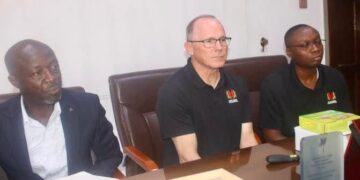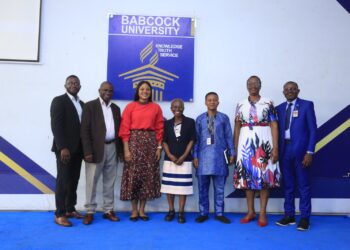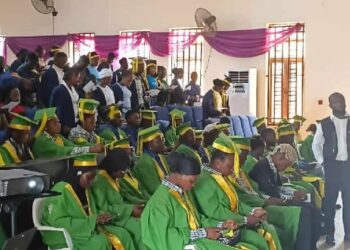Port Harcourt, 21 May 2025 – The Vice-Chancellor of the University of Port Harcourt, Professor Owunari Georgewill, has attributed the low uptake of the Nigerian Education Loan Fund (NELFUND) scheme in the South-South and South-East regions to deep-rooted cultural resistance to debt.
Speaking during a Strategic Engagement and Sensitisation Campaign held by NELFUND in Port Harcourt on Wednesday, Professor Georgewill stated that many families in the regions are reluctant to allow their children to take loans, even when they are interest-free.
“This is not a grant; it’s a loan. As a Vice-Chancellor, I believe every student should take advantage of this programme. However, despite our efforts at advocacy, the word ‘loan’ itself is a major deterrent,” he said.
He proposed that the government rebrand the initiative as a “repayable grant” to reduce the stigma associated with debt and make it more acceptable to parents and guardians.
On allegations of fraud within the scheme, the Vice-Chancellor dismissed the claims as unfounded and damaging to a vital national initiative.
“Universities are being unfairly criticised for participating in the scheme. But how can I defraud myself with funds paid directly to my university for students’ tuition? Those funds become part of our operating budget,” he explained.
Professor Georgewill highlighted that the University of Port Harcourt charges one of the lowest tuition fees among federal universities—N78,000 per annum—making education relatively affordable for many families even without a loan.
He also revealed that only 1,800 out of the university’s 40,000 students currently benefit from the loan scheme.
“Why would I be involved in fraud over just 1,800 students when 38,000 others pay their fees directly? The entire NELFUND payment goes towards student tuition,” he emphasised.
Also speaking at the event, NELFUND Managing Director, Mr Akintunde Sawyerr—represented by Dr Zino Ugboma, Director of Administration—acknowledged some challenges but reaffirmed the agency’s commitment to transparency and continuous improvement.
“The system is not perfect, but we are doing our best to make it as effective as possible. Sensationalism and misinformation can jeopardise a programme that has the potential to transform education access in Nigeria,” he said.
Mr Sawyerr called for cooperation among stakeholders and cautioned against premature conclusions that could harm the scheme’s credibility and future.



















































































 EduTimes Africa, a product of Education Times Africa, is a magazine publication that aims to lend its support to close the yawning gap in Africa's educational development.
EduTimes Africa, a product of Education Times Africa, is a magazine publication that aims to lend its support to close the yawning gap in Africa's educational development.